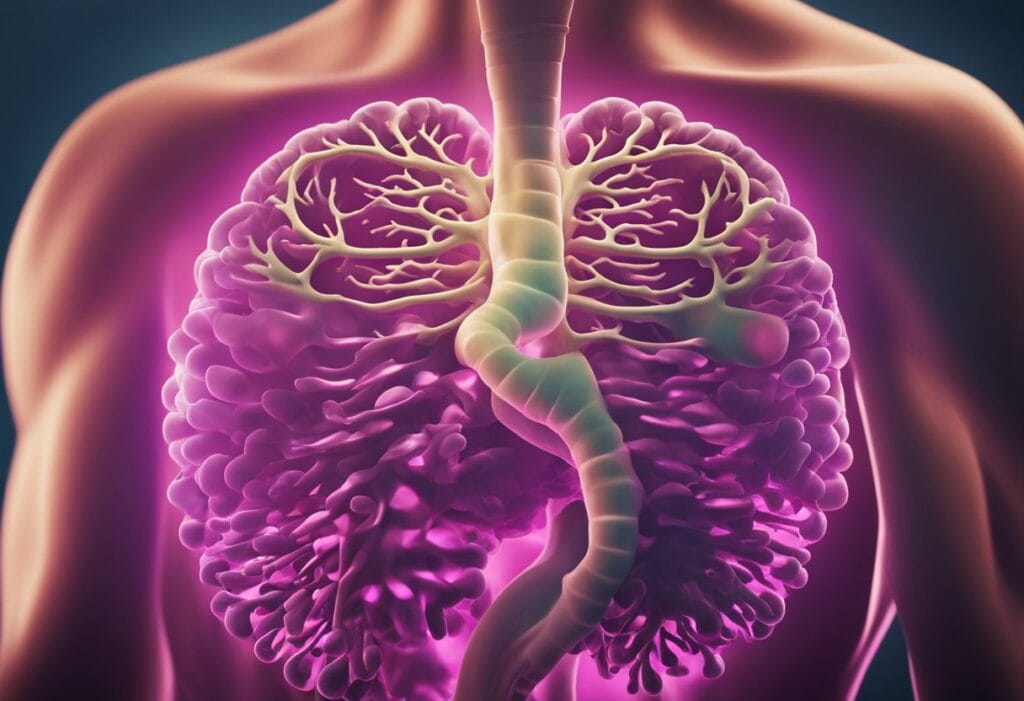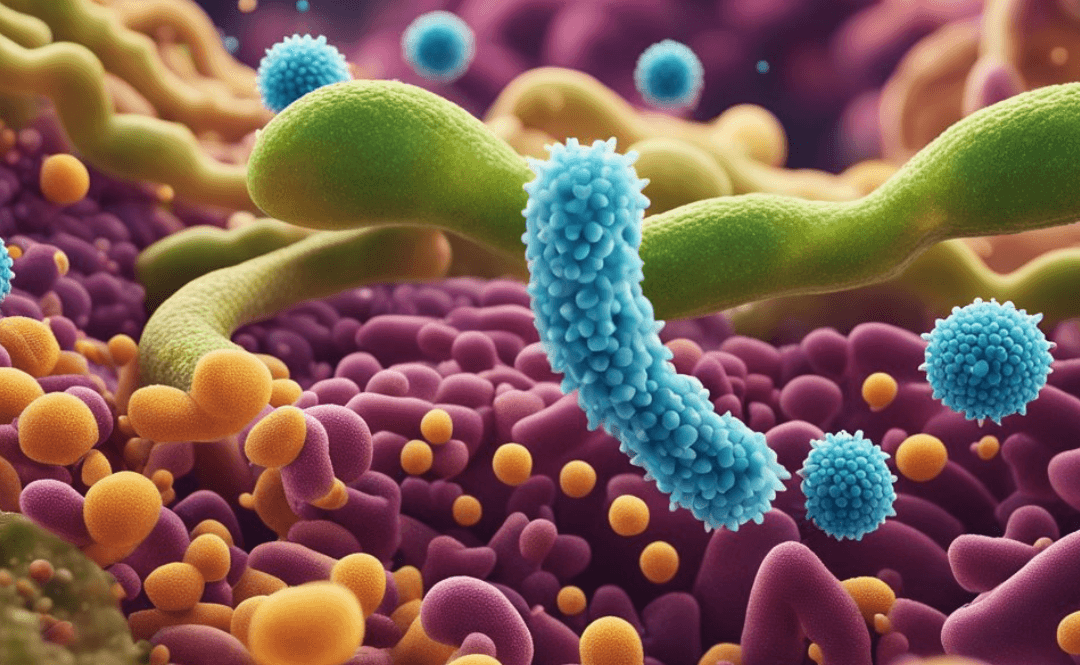Maintaining good gut health is vital for overall wellbeing. The gut is home to trillions of bacteria, fungi, and other microorganisms that play a crucial role in digestion, nutrient absorption, and immune system function. A healthy gut is also linked to better mental health, improved sleep, and reduced risk of chronic diseases such as diabetes, heart disease, and certain cancers.

Understanding gut health involves recognizing the complex ecosystem of microorganisms that live in the gut and how they interact with the body. Factors affecting gut health include diet, stress, medications, and environmental toxins. Common gut health issues include irritable bowel syndrome (IBS), inflammatory bowel disease (IBD), and leaky gut syndrome. Improving and maintaining gut health involves eating a balanced diet rich in fiber and fermented foods, managing stress, getting enough sleep, and avoiding harmful substances.
Overview
Key Takeaways
- Maintaining good gut health is crucial for overall wellbeing and linked to better mental health and reduced risk of chronic diseases.
- Understanding gut health involves recognizing the complex ecosystem of microorganisms in the gut and how they interact with the body.
- Improving and maintaining gut health involves eating a balanced diet, managing stress, getting enough sleep, and avoiding harmful substances.
Understanding Gut Health
When it comes to overall health, we cannot ignore the importance of gut health. The gut is home to trillions of microorganisms, including bacteria, viruses, and fungi, collectively known as the gut microbiome. The gut microbiome plays a crucial role in maintaining our overall health and well-being.
The Role of Gut Microbiome
The gut microbiome is involved in various processes in our body, including digestion, metabolism, and immune function. It helps in breaking down the food we eat, extracting nutrients from it, and eliminating waste products. The gut microbiome also plays a significant role in regulating our immune system, protecting us from harmful pathogens and diseases.
Significance of Bacteria in Digestion
Bacteria are the most abundant microorganisms in the gut microbiome, and they play a crucial role in maintaining gut health. They help in breaking down complex carbohydrates and fibers that our body cannot digest on its own. This process produces short-chain fatty acids (SCFAs), which are essential for maintaining gut health. SCFAs provide energy to the cells lining the gut and help in regulating the immune system.
Impact of Diet on Gut Health
Our diet plays a significant role in shaping the composition and diversity of the gut microbiome. A diet rich in fiber, prebiotics, and probiotics can help in maintaining a healthy gut microbiome. Fiber-rich foods, such as fruits, vegetables, whole grains, and legumes, provide the necessary nutrients for the growth and maintenance of the gut microbiome. Probiotics, such as yogurt, kefir, and kimchi, contain live microorganisms that can help in restoring the balance of the gut microbiome. Prebiotics, such as garlic, onions, and asparagus, provide food for the beneficial bacteria in the gut.
In conclusion, maintaining a healthy gut microbiome is crucial for our overall health and well-being. By consuming a diet rich in fiber, prebiotics, and probiotics, we can support the growth and maintenance of the gut microbiome, which in turn can help in improving our digestion, metabolism, and immune function.
Factors Affecting Gut Health
Maintaining a healthy gut is essential for overall well-being. Several factors can influence our gut health, including our diet, lifestyle, environment, and medications. In this section, we will discuss the most significant factors that can impact gut health.
Dietary Influences
Our diet plays a crucial role in maintaining a healthy gut. Eating a diet rich in fiber, fruits, vegetables, and fermented foods can help promote the growth of beneficial gut bacteria. On the other hand, a diet high in processed foods, sugar, and unhealthy fats can negatively impact gut health. Research has shown that consuming a high sugar diet can lead to an imbalance of gut bacteria, which can contribute to various health problems.
Lifestyle and Environment
Our lifestyle and environment can also impact our gut health. Stress, lack of sleep, and a sedentary lifestyle can all negatively affect gut health. Exercise, on the other hand, can help promote a healthy gut by increasing blood flow to the intestines and promoting the growth of beneficial gut bacteria. Environmental factors such as pollution and exposure to toxins can also impact gut health.
Medications and Antibiotics
Certain medications, such as antibiotics, can have a significant impact on gut health. Antibiotics are designed to kill harmful bacteria, but they can also kill beneficial bacteria in the gut. This can lead to an imbalance of gut bacteria, which can contribute to various health problems. Other medications, such as proton pump inhibitors and nonsteroidal anti-inflammatory drugs (NSAIDs), can also negatively impact gut health.
In conclusion, maintaining a healthy gut is essential for overall well-being. Our diet, lifestyle, environment, and medications can all impact gut health. By making healthy lifestyle choices, eating a balanced diet, and avoiding unnecessary medications, we can help promote a healthy gut and improve our overall health.
Common Gut Health Issues

Maintaining good gut health is essential for overall well-being. Poor gut health can lead to various digestive issues, causing discomfort and affecting our daily lives. Here are some common gut health issues that people face:
Symptoms of Poor Gut Health
There are several symptoms of poor gut health, including inflammation, constipation, diarrhea, bloating, nausea, and abdominal pain. These symptoms can be caused by various factors, such as an unhealthy diet, stress, lack of exercise, and medication.
Inflammatory Bowel Disease (IBD) and Irritable Bowel Syndrome (IBS)
Inflammatory bowel disease (IBD) and irritable bowel syndrome (IBS) are two common gut health issues that affect millions of people worldwide. IBD is an umbrella term for various chronic inflammatory conditions that affect the digestive tract, such as Crohn’s disease and ulcerative colitis. IBS, on the other hand, is a functional disorder that affects the large intestine.
Small Intestinal Bacterial Overgrowth (SIBO)
Small intestinal bacterial overgrowth (SIBO) is a condition in which there is an overgrowth of bacteria in the small intestine. This can lead to various symptoms, such as bloating, abdominal pain, and diarrhea. SIBO can be caused by various factors, such as an unhealthy diet, stress, and medication.
In conclusion, maintaining good gut health is essential for overall well-being. Poor gut health can lead to various digestive issues, causing discomfort and affecting our daily lives. If you are experiencing any of the symptoms mentioned above, it is essential to seek medical advice to determine the underlying cause and receive appropriate treatment.
Improving and Maintaining Gut Health

Maintaining a healthy gut is essential for overall well-being. A balanced diet and lifestyle adjustments can help improve gut health. In this section, we will discuss some effective ways to improve and maintain gut health.
Probiotics and Prebiotics
Probiotics are live bacteria that are beneficial for gut health. They can be found in fermented foods such as yogurt, kefir, sauerkraut, and kimchi. Probiotic supplements are also available in the market.
Prebiotics are non-digestible fibers that feed the good bacteria in our gut. They can be found in foods such as garlic, onions, bananas, and asparagus. Including probiotics and prebiotics in our diet can help maintain a healthy balance of gut bacteria.
Importance of Fiber-Rich Foods
Fiber is an essential nutrient for gut health. It helps regulate bowel movements and promotes the growth of good bacteria in the gut. Vegetables, fruits, whole grains, legumes, nuts, and seeds are excellent sources of fiber. Including these foods in our diet can help improve gut health.
Lifestyle Adjustments for Better Gut Health
Apart from diet, lifestyle adjustments can also help improve gut health. Managing stress, getting enough sleep, and staying hydrated are some ways to maintain a healthy gut. Regular exercise can also help improve gut health by promoting healthy bowel movements.
In conclusion, maintaining a healthy gut is essential for overall well-being. Including probiotics and prebiotics in our diet, consuming fiber-rich foods, and making lifestyle adjustments can help improve gut health.
Gut Health and Overall Wellbeing

Maintaining a healthy gut is crucial for our overall wellbeing. Our gut health is linked to various aspects of our physical and mental health, including the gut-brain connection, immune system, and mental health.
The Gut-Brain Connection
The gut and the brain are connected through the gut-brain axis, which allows communication between the two. The gut produces neurotransmitters such as serotonin, which plays a crucial role in regulating mood, appetite, and sleep. In fact, about 90% of serotonin is produced in the gut.
Furthermore, the gut is home to trillions of bacteria, collectively known as the gut microbiome. The gut microbiome also plays a significant role in the gut-brain connection. Research suggests that the gut microbiome can influence our mood, anxiety, and stress levels.
Gut Health and Immune System
A healthy gut is essential for a strong immune system. The gut is responsible for absorbing nutrients from the food we eat, and it is also the first line of defense against harmful pathogens.
The gut microbiome plays a crucial role in maintaining a healthy immune system. A diverse and balanced gut microbiome can help protect against infections and inflammation. On the other hand, an imbalanced gut microbiome, known as dysbiosis, can lead to an increased risk of infections and chronic diseases.
Influence on Mental Health
Our gut health is also linked to our mental health. Research suggests that an imbalanced gut microbiome can increase the risk of mental health disorders such as anxiety, depression, and mood disorders.
Furthermore, the gut-brain axis allows communication between the gut and the brain, which can influence our mood and stress levels. A healthy gut can help regulate our mood and reduce stress levels, while an imbalanced gut can lead to increased stress and anxiety.
In conclusion, maintaining a healthy gut is crucial for our overall wellbeing. Our gut health is linked to various aspects of our physical and mental health, including the gut-brain connection, immune system, and mental health. By prioritizing our gut health through a healthy diet, exercise, and stress management, we can improve our overall wellbeing.










